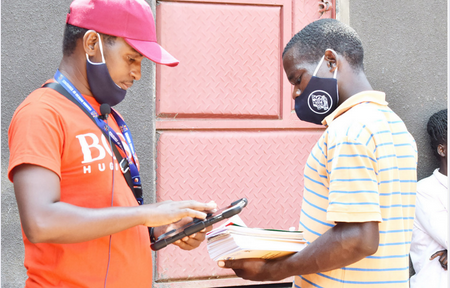
The Uganda Bureau of Statistics (Ubos) has allocated six extra days for the 2024 National Population and Housing Census to allow enumerators who faced login challenges to complete the exercise. Initially scheduled to end on May 17, the census, running under the theme "It matters to be counted," will now extend until May 25 in specific areas.
In a statement on May 18, Dr. Chris Mukiza, the executive director of Ubos, acknowledged the issues that delayed the census in certain Enumeration Areas (EAs).
“Indeed, the Bureau noted that there are Enumeration Areas which could not start on May 10, 2024, due to login difficulties. The login challenges were resolved within a period of one to four days, and generic logins were developed for villages to enable work to begin, which became effective on the fourth day,” Dr. Mukiza explained.
The additional days will ensure that hard-to-reach areas and villages missed due to incomplete listing during the mapping process are included. Dr. Mukiza urged household heads who have not yet been enumerated to make an appointment with their LC1 chairpersons to arrange for enumeration before the end of the waiver period.
Speaking to this platform, Ubos spokesperson Didacus Okoth emphasized that the extension is not a blanket one but specifically targets areas that could not start on May 10 due to initial issues. Enumerators in these areas have been given until May 25 to complete their assignments.
Earlier, Ubos had extended the census by one day, from May 19 to 20, for the districts of Kampala, Wakiso, and Mukono due to various challenges. These included incomplete listing during the mapping process, delayed deployment of enumerators, complaints about delayed facilitation, and hostility faced by some data collectors from the public.
On May 13, Ubos board chairperson Albert Byamugisha acknowledged the glitches in the census process and promised to find solutions to the challenges encountered. Despite these efforts, Ubos has faced criticism from the public for what many perceive as poor planning and last-minute preparations. Critics argue that with the last national census conducted in 2014, the government had ample time to prepare for the 2024 census.
The census involves about 119,000 enumerators and 18,000 parish and sub-county supervisors conducting a door-to-door exercise. The data collected will be crucial for future planning purposes for the country.
In summary, the extension aims to ensure comprehensive data collection, addressing initial logistical and technical setbacks. The initiative reflects Ubos’s commitment to overcoming challenges and ensuring that every Ugandan is counted, despite the hurdles faced during the initial phase of the census.

















